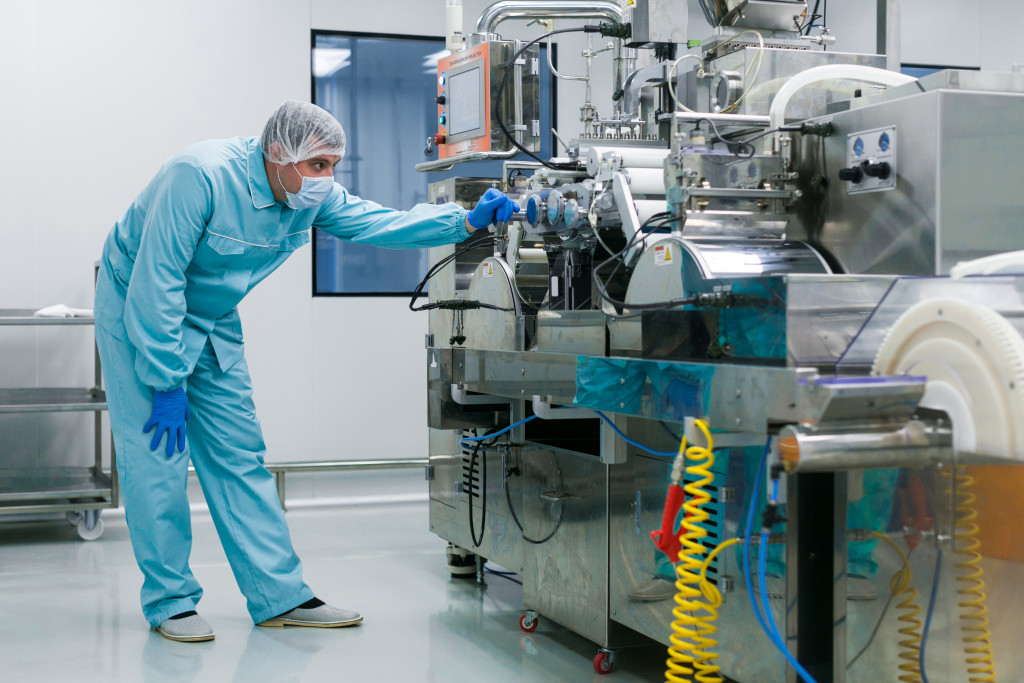Technology has transformed the manufacturing industry. And today, many companies are beginning to see its value in terms of research and development of new products. The potential advantages of technology in the health sector are enormous. Additionally, innovative methods are paving the way for a more efficient, cost-effective, and customized approach to drug product manufacturing.
According to experts, the cost of introducing a particular product to the market can exceed millions of dollars. This cost is then reflected in additional fees for insurance companies and consumers. Utilizing advanced technology to bring prices down is important, and innovation plays a critical role in reaching this goal.
Revolutionizing Manufacturing Processes
Modern technology is assisting the production process, especially within the healthcare industry. Over the past few years, we’ve seen novel drugs emerge to address the increasing needs of many -all thanks to technology and advanced practices.
We’ve seen how the advancement of new technologies is crucial to the progress of both patient independence and therapeutic research. But, a challenge remains. Regulatory bodies must guarantee that these products are produced under consistent quality and safety requirements.
Regulatory Considerations in Manufacturing
More and more medicines are being created and produced than ever before. This situation raises surveillance of product applications and data release for compliance. Not to mention the need for medicinal products to be manufactured safely and securely.
Manufacturers must provide regulators with complete, comprehensive assessments of high-quality data. Regulatory bodies should safely verify this information via comprehensive protocols and operating procedures essential to the manufacturing process.
Traditional Data Gathering
Some firms still depend on handwritten notes, paper-printed records, and the like. Working in this traditional method will result in traceability loopholes and skip critical data-checking processes and provide an incomplete picture of the data that has been collected.
As authorities perform in-depth examinations of laboratory findings, creating an inclusive and comprehensive audit trail becomes more complex. So, shifting to new practices will be a much better way to adapt to these changes.
How Technology Assist in Compliance
Manufacturers who operate with innovative practices can establish regulatory confidence by keeping consumer safety as a key concern. Modern automated technologies enable manufacturers to eliminate uncertainty and tampering with data, giving them complete information when reporting data to authorities.
Data management compliance solutions are being developed to complement electronic records, enabling producers to provide their drug data with full transparency and traceability.
Today, fast and reliable solubility measuring instruments can help speed up drug development by making it easier and quicker to acquire accurate data. A piece of equipment for pharmaceutical solubility tests meets various requirements and applications, ranging from kinetic solubility control to supersaturation assessment.
Other Improvements in Manufacturing Process

3-D Printing
While 3-D printing is not new to healthcare, yet drug production has been slow to catch on. 3-D-printed teeth and prostheses are already being utilized to help patients in various medical fields. But, there is a noticeable shortage of FDA-approved 3-D-printed medicinal goods on the market.
3-D printing may be used to create medicines. This practice offers intriguing advantages, such as unique customization to a particular patient’s requirements. While having a 3-D printer at your local drugstore is a far-fetched notion, the concept of augmented drug manufacturing is propelling the industry forward towards a vision in which healthcare providers can address people’s illnesses individually.
Automation
When it comes to innovation, the health sector goes ahead of itself for inspiration. Of course, equipment automation has continued to offer significant benefits in different industries for over a century. In many ways, automation helps decrease costs and improve the performance of complex operations. Community drugstores are now attempting to do the same.
Artificial Intelligence
Machine learning is a field of computer science that includes computers that can perform activities and exhibit characteristics usually associated with humans. It is prevalent in many industries. It can collect data and determine the most efficient procedures in general production. This feature enables it to develop goods and improve the whole process.
The approach of medicinal engineering in drug manufacturing can be modified using digital innovation. Artificial intelligence can help evaluate individual profiles and compare medication effectiveness and demand with access to clinical data. This way, manufacturers can modify their medications to make better forecasts on the usage of certain medicines and their efficacy in specific people.
The drug development business is continuously changing and evolving. Advanced technology such as artificial intelligence and automation are key factors driving these breakthroughs. Whichever technique is there, it’s essential to continue with a central purpose -creating improved ways to enhance the healthcare practice.

